By using our site, you agree to our cookie policy.
Mortgage Broker Guide
Here’s a simple guide on everything mortgage broker: what do mortgage brokers do? Do I need a mortgage broker? Should I go directly to a lender? All that and more below.

With so many mortgage lenders and deals on the market, we understand that it can be tough to know what’s best for you. That’s why you might choose to turn to a mortgage broker: a mortgage broker is an adviser who can help to select the best mortgage product for you.
Where should I get a mortgage from?
If you’re buying a house using a mortgage then you need to decide where to get your mortgage from. A mortgage is a loan that you’ll get from a lender (usually a bank or building society). You get a loan against a house, and you pay back your loan in monthly instalments. There are two main places to get your mortgage from: Directly from the lender: Going directly to the bank or building society is one option for getting a mortgage. The lender will have access to their own mortgage rates alone. Via a mortgage broker: A mortgage broker, also known as a mortgage advisor, is a middleman between you and your lender. They’re essentially like a price-comparison website, but for comparing mortgage deals. It allows you to view and consider mortgage rates from various lenders, in order to decide which deal works best in your specific situation.

Lender or broker?
A mortgage broker is a professional who acts as an intermediary between you and potential lenders when you're seeking a mortgage to purchase a home or refinance your existing mortgage. The broker's job is to help you find the right mortgage product for your specific needs and qualifications, and then assist you in navigating the application and approval process. It’s a bit like shopping around for your best deal on broadband, insurance or your phone deal — but in this case, there are thousands of options from dozens of lenders. Some people might want to go with a lender they know and trust and apply directly, but some might want to see what options are out there from thousands of choices. That’s where a broker comes in.

Here at Strike we think almost anyone could benefit from going to a mortgage broker. Our team of advisors can help you access more than 12,000 mortgage deals in order to secure the right deal for you. But not everyone sees the appeal of a broker, preferring to go directly to a lender.
Lenders: explained
A lender is a financial institution that can lend money. For a house, they’d give you a loan in the form of a mortgage. When we talk about mortgage “products”, “deals” or “rates” we are referring to different ways of paying back your loan – the timeframe, the amount, the interest rate on it and so on. Lenders have their own selection of mortgage products to choose from. Here are some examples of mortgage lenders: High street banks: Many banks offer a range of mortgages. Examples of banks include Barclays, HSBC, Lloyds Bank, NatWest, and Santander. Banks will have their own products, and regulations and rules around borrowing money. You can apply for a mortgage directly to a bank. Building societies: This is a mutual organisation, which offers mortgages to its members. Whilst the majority of building societies operate mainly online, some have brick and mortar buildings you can go into. Examples include Nationwide, Coventry Building Society, and Yorkshire Building Society.

Specialist lenders: Some lenders specialise in specific types of mortgages. These may be more specialist or less standard mortgages, such as buy-to-let, self-employed (meaning you’re not on a PAYE contract), or adverse credit mortgages. Examples include Precise Mortgages, Kensington Mortgages, and Aldermore. Credit unions: It’s less commonplace to get a mortgage from a credit union, which are not-for-profit, community-run organisations. Some credit unions offer mortgages to their members, although their product range may be limited. Advocates of credit unions would say that their not-for-profit status means they’re more likely to offer appealing and affordable products, but it’s imperative that you do research into your own mortgage plan.
What are the pros of going directly to a lender?
If you’re tempted to go directly to a lender, you may be interested in the main pros of going to a bank or building society directly? Here are a few benefits: Familiarity with the lender: If you have an existing relationship with a lender, going directly to them can make the process more streamlined and convenient. You may also be able to leverage this relationship to negotiate better rates and terms. No additional fees: When you work directly with a lender, you typically won't have to pay any additional fees beyond the cost of the mortgage itself. More control: When you work directly with a lender, you have more control over the process and can be more involved in the decision-making. You may feel safer going directly to a lender, particularly if you’ve worked with them in the past. But there are thousands of reputable brokers who will guide you through the process with ease, making sure you don’t miss out on epic deals that could make your home ownership dreams come true. In contrast, going directly to a lender could have an adverse effect - closing doors when you need them to be open the most!

Cons of going directly to a mortgage lender:
Limited product range: While lenders may have a range of mortgage products, they may not have access to every product on the market. This means you may miss out on certain products or features that could be beneficial to you. Limited negotiating power: When you work directly with a lender, you may have less negotiating power than if you were working with a mortgage broker. This can make it more difficult to secure the best rates and terms. Limited guidance: While lenders can provide you with information about their products, they may not be able to provide the same level of guidance and expertise as a mortgage broker.
When you work directly with a lender, you may have less negotiating power than if you were working with a mortgage broker. This can make it more difficult to secure the best rates and terms."
Mortgage brokers explained
A mortgage broker is a professional who acts as an intermediary between you and potential lenders when you're seeking a mortgage to purchase a home or refinance your existing mortgage. The broker's job is to help you find the right mortgage product for your specific needs and qualifications, and then assist you in navigating the application and approval process.

The benefits of working with a broker:
Access to multiple lenders: One of the main big advantages of working with a mortgage broker is that they have relationships with a wide range of lenders. This means they can shop around on your behalf to find the best mortgage rates and terms for your unique situation. Expert guidance: A good mortgage broker will have a deep understanding of the mortgage market and can provide you with valuable advice and guidance throughout the process. They can help you understand the different types of mortgages available, explain the pros and cons of each, and answer any questions you have. Time savings: Shopping for a mortgage can be time-consuming and confusing, especially if you're not familiar with the process. A mortgage broker can help streamline the process and save you time by doing lots of the legwork for you. Negotiating power: Mortgage brokers have negotiating power with lenders and can often secure better rates and terms than you would be able to get on your own.

Can operate online: These lenders only operate online. You may find that some online-only lenders offer cheaper products compared to traditional lenders. One reason for this is their minimal overheads, as they don’t have IRL branches. Examples include Habito, Trussle, and Mojo Mortgages. A mortgage broker can help navigate you through every stage of finding and applying for a mortgage – to get the best deal available based on your individual circumstances. For example, their service may include: Helping you assess your financial situation. Suggest the most suitable mortgage for your needs. Searching the market to find deals that match your criteria.
What are the downsides of employing a broker?
Some people prefer to feel like they’re at the centre of the action - driving the whole process. If you’re a detail-oriented and research-driven person, then you may prefer to have more control and not hire a broker. A broker will cost you. Though the hope is that they save you money overall, you may just not have the funds upfront to afford their services, which are a maximum of 1% of your loan amount, but tend to be lower. You may not want all the choices a broker affords you. If you’ve found a deal you’re really happy with, at a reputable lender, we can see the appeal of keeping it simple and going with them.
How do I choose a broker?
We may recommend a broker to help you choose between mortgage deals, but don’t worry you don’t need another broker to help you pick a broker! There are plenty of websites that can help you discern between brokers, to pick which would be a good fit for you. You may also choose to just do a simple search online, or ask friends and family in similar circumstances to you. You need to think about your situation and decide what expertise you’d value most: If you have complex mortgage needs: Have an irregular income or looking for a mortgage for an unusual building? Then you may want to look for a mortgage broker who specialises in complex circumstances. If you’re looking for a very fast turnaround: If speed is the name of the game, then you’ll want to find someone who can zip through the process. You may have to pay a premium for speed, so do your research. If you want to take a “whole of market” approach: If you want to look at a wide variety of products which are representative of the whole mortgage market, then you’ll want a “whole of market mortgage broker.” This is as opposed to a broker who has obligations to a specific lender or more limited list of lenders.

Our dedicated advisors at Strike can help whatever your situation - that’s why so many people recommend our services. Our process looks something like this: To start, you’ll just need to answer a few questions about your borrowing goals. They find out what you need — and how they can help. And don’t be afraid to ask any question you have along the way — they’ve seen it all, and they’re here to make your mortgage application run smoothly. They search thousands of deals. Whether you want to borrow more, reduce payments, or find a better rate, your dedicated advisor will do all the legwork — searching dozens of lenders to find you the right deal. Paperwork? Insurance? Mortgage protection? They’ll handle it. Your advisor will be available 7 days a week and the whole Strike team will be with you through the entire mortgage process — all the way until the keys are in your hand.
How do brokers charge?
Mortgage brokers charge different amounts, but the hope is that paying for their service now will help to save you a lot of money down the line. Across the market, you shouldn’t be charged a fee greater than 1% of your loan. Brokers either charge a fee (so a set amount decided according to your situation and needs), commission (which is paid by the lender as a fraction of the amount of your loan), or both.

If your broker is paid in commission from a lender, you will want to check that they are not tied to any specific lender, or attracted to a lender because of their commission. You want to make sure that you’re getting access to a wide range of products, where you can choose the best deal for you. The average commission fee is 0.35% of the total loan, which will be paid from the lender to the broker.
So...
Whether to use a mortgage broker or go directly to a lender depends on your individual needs and preferences. If you value expert guidance, access to multiple lenders, and time savings, a mortgage broker may be the best option for you.
Strike feel free
Copyright © Strike Limited 2024

